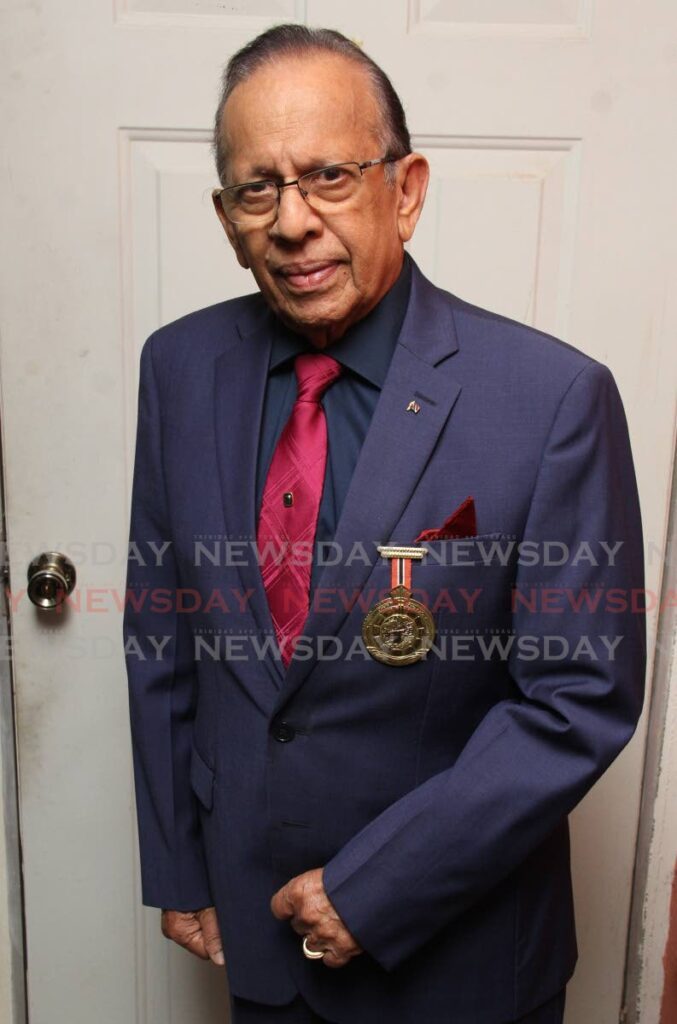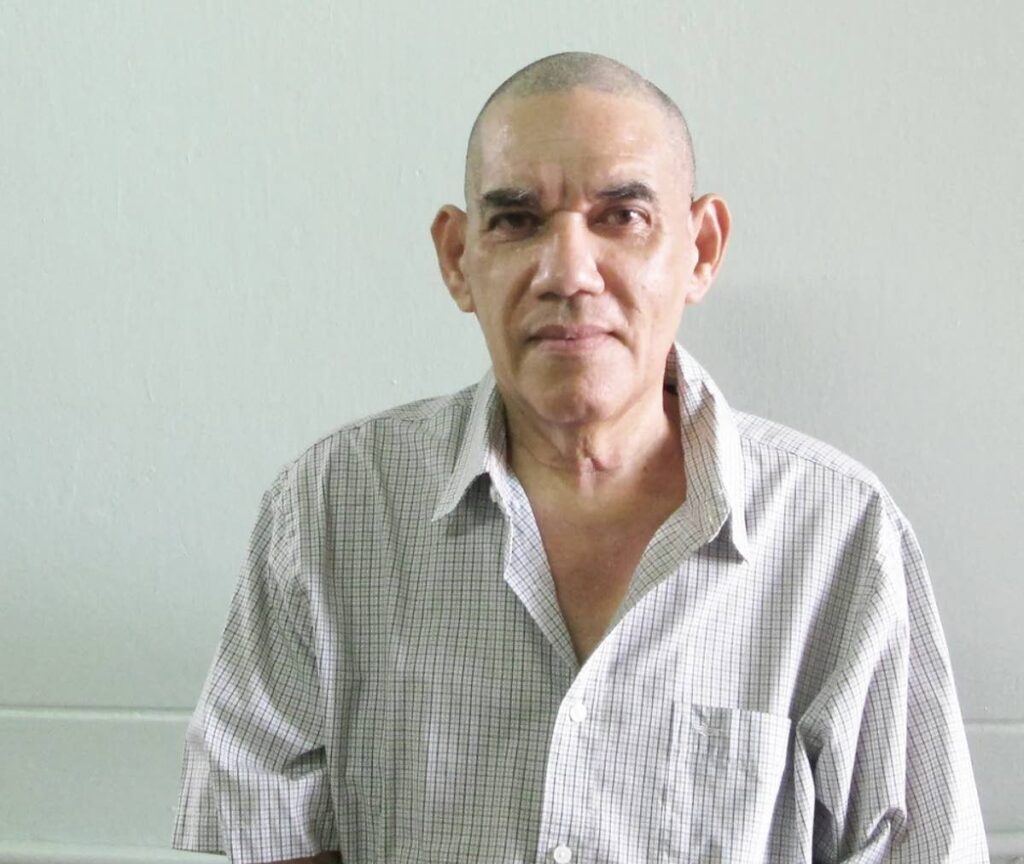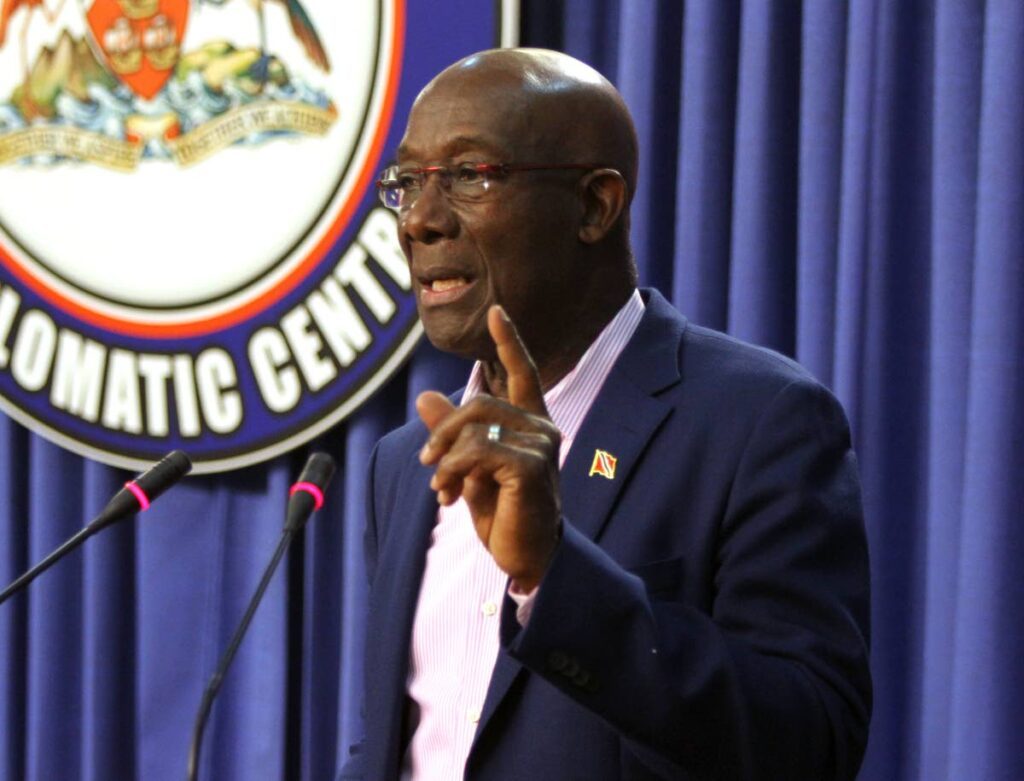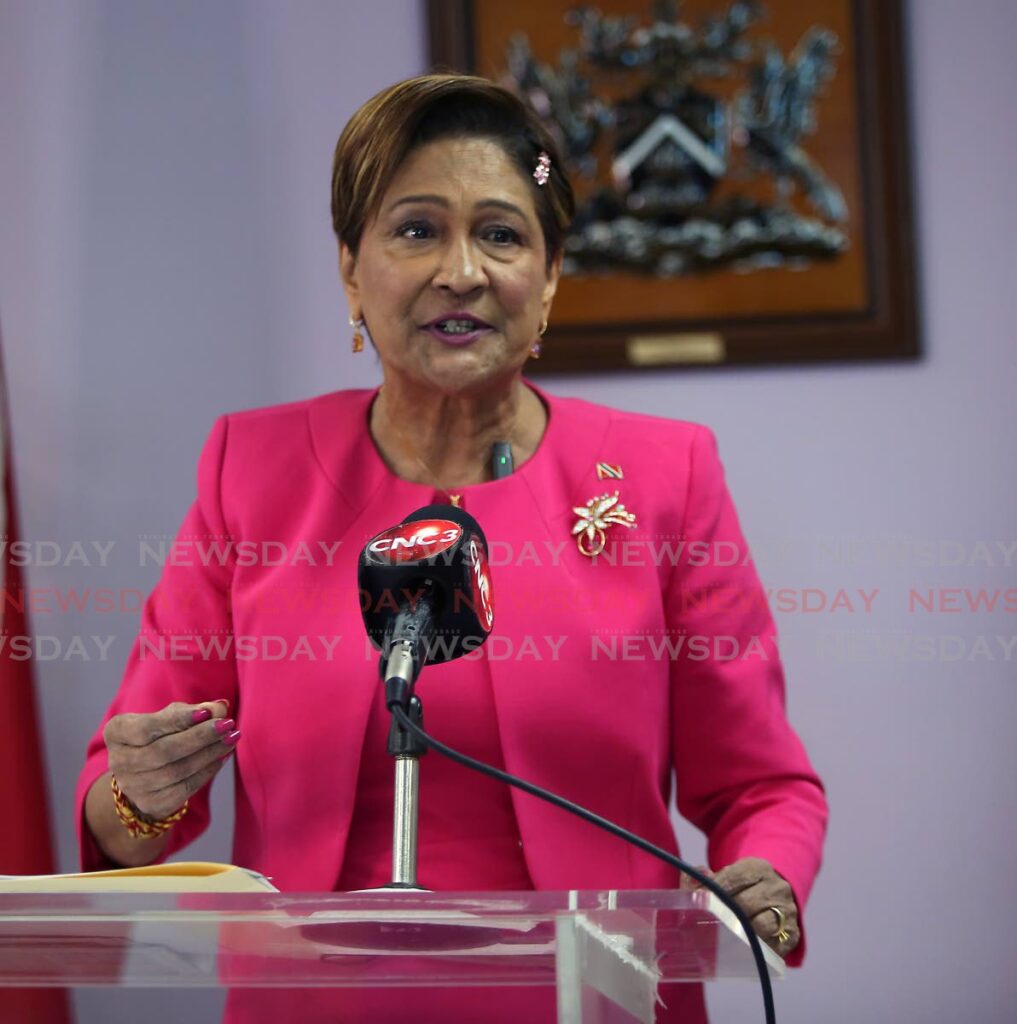Criminologists – Get serious about crime talks

CRIMINOLOGISTS Professor Ramesh Deosaran and Daurius Figuera slammed government and the opposition for “continuing to pursue petty political agendas” while refusing to cooperate to bring crime under control.
They made their condemnation as both sides remain poles apart as to when they will meet and what they will do collectively to bring desperately needed relief to a crime-weary population.
In a statement, Deosaran said, “Given the strained non-productive relationship now existing between the PNM and UNC on the proposed crime talks, the government should go to parliament with whatever its crime proposals are, let the Opposition reply and let the people judge.”
He then rephrased his words in more blunt language.
“Cut out the shadow-boxing, bluffing and follow the constitution and parliamentary democracy, especially since the government insists on having only legislative matters in the crime talks.”
Deosaran said the ongoing stances adopted by the government and opposition when it comes to acting responsibly on matters such as crime make certain things clear to the population.
“The required elements of mutual trust, compromise and political respect have gone dead.”
He was not surprised by this.
But Deosaran added it is “very difficult for any positive, public-interest outcome.”
He compared the PNM and UNC's behaviour to that of the Roman emperor Nero, playing his fiddle while Rome burnt to ashes around him.
“Too much valuable time is being wasted in this very serious matter, increasingly affecting personal safety, economic progress, national security and the overall quality of life in the country.”
He called on the government and opposition to get serious and end the political pappyshow that the “dangling crime talks” have become.
Deosaran demanded that both sides stop demoralising the society with their unnecessary politicking.

“The elected politicians should now stop it and do their parliament duties.”
Figuera shared a similar perspective.
In a separate statement, he said, “All we are seeing is political brinkmanship and self-importance where both maximum leaders (Dr Rowley and Opposition Leader Kamla Persad-Bissessar) refuse to appear as the one begging for detente, insisting that the other must capitulate.”
Figuera added, “Both sides are clearly in general-election mode, engrossed in playing the blame game that does nothing for heightening our public safety on the ground.”
He said the public should note that last month possibly recorded the lowest murder toll for the year.
Statistics on the police service’s website showed 54 murders reported in October. The lowest total for this year was 38, in March.
Figuera said, “This is a platform to build on, not to fail to exploit because our politicians are immersed in political campaigning as if a general election is on the cards in 2024.
“Are the elected politicians of TT seeking our interests, or is theirs paramount?”
Figuera also believed there is government legislation currently before the House of Representatives that is vitally necessary to police the integrity of the national security apparatus, which requires the support of the opposition.
In a signed letter on October 12, Rowley wrote to Persad-Bissessar about scheduling bipartisan crime talks immediately after the budget debate in Parliament.

That debate ended in the House on October 12 and in the Senate on October 24.
In that letter, Dr Rowley proposed a five-member government team led by Attorney General Reginald Armour, SC, to meet with a four-member opposition team to discuss several pieces of anti-crime legislation for passage in Parliament.
Among the legislation proposed by Rowley for discussion was whistleblower protection, anti-gang, bail, interception of communication, cybercrime and polygraph tests for law enforcement officers. He added this list was not exhaustive.
Rowley said the government-opposition teams will have the ability, by majority vote, “to co-opt the input of citizens by way of memoranda and/or consultation.”
The other members of the government’s team are Minister in the Office of the Prime Minister Stuart Young, National Security Minister Fitzgerald Hinds, Housing Minister Camille Robinson-Regis, Public Utilities Minister Marvin Gonzales and Tourism, Culture and the Arts Minister Randall Mitchell.
After Rowley’s letter, Persad-Bissessar publicly criticised him for not being part of the government’s team for the talks.

In a letter on November 3, Armour wrote to Persad-Bissessar to arrange bipartisan talks. He invited Persad-Bissessar to indicate the members of the opposition’s team for the talks and said he hoped Persad-Bissessar would reply on or before November 9.
“I take this opportunity to remind you of the Government’s steadfast commitment to the safety and security of our nation’s citizens, underscoring the importance of constructive bipartisan dialogue.”
Neither Rowley, Armour nor any of the other members of the government’s team were available for comment on Monday as to why the talks have not happened yet.
But one senior government official, speaking on condition of anonymity, said Government has opened the door for discussions with the opposition.
“No idea (why the talks have not happened), the ball is in their (UNC) court.”
In a WhatsApp reply, UNC chairman Davendranath Tancoo said, “We are awaiting the availability of the Prime Minister and his clarification of a series of issues raised by the UNC.”
He was baffled as to why Rowley, as National Security Council chairman, would host a Caricom summit on crime in TT and ask for help to fight crime at the recent Caricom-Canada summit in Ottawa but refuse “to meet with a local body (UNC) that has indisputably reduced crime between 2010 and 2015.”
Tancoo said the UNC will select its team for the talks based on Rowley’s response.
“There are a vast number of persons who have reached out to Mrs Persad-Bissessar and the UNC and who have expressed a desire to work with anyone willing to try to deal with the crime wave.”
Tancoo added that these people do not have faith in the PNM doing anything to curb crime.
He said he had visited four homes in his Oropouche West constituency where the residents had been the victims of home invasions.
“These people are traumatised...and so too are their neighbours. Entire villages, communities are now living in absolute fear.”
Tancoo slammed Government for engaging in "public-relations antics" and giving the police limited resources to fight crime.
Former commissioner of police Gary Griffith believes blatant disrespect and deceit by the Government to the Opposition is a reason why the talks have not happened.
“It shows that this is nothing more than political propaganda. It is a cosmetic plan by the Government in a typical way. You can read the tealeaves.”
Griffith said the PNM would not be acting the way it is if it was serious about dealing with crime.
“The Prime Minister had the audacity to say that one team will have five (members), the other team will have four.”
He claimed this was an attempt by Rowley to convert the bipartisan team into a parliamentary committee where the government holds the majority.
“There is no circling of the wagons and people going to that table with an equal degree of having to make statements and comments.”
Griffith said the talks should not deal only with legislation.
“It shows the ignorance of the government believing that legislation is the sole factor towards reducing crime.”
He said if the government proposes ten bills but the opposition only supports nine, “that 10th bill, they will say that is the reason that crime is going up.”
Griffith claimed this is “a shifting of the goalposts deliberately to try to put blame on the opposition.”
He described Armour as out of place to write to Persad-Bissessar to select the opposition’s team for the talks.
“How does the AG get in this? What is his involvement?”
Griffith said this matter involved correspondence and dialogue between Rowley and Persad-Bissessar alone. He added it made no difference if Persad-Bissessar chose to respond to Armour after November 9, if she chose to.
Griffith said Rowley, as National Security Council head, is showing no patriotism or leadership by not having the common courtesy to attend the talks.
“It shows that really doesn’t care. The government does not care. This is all a political ploy and a political propaganda campaign in the hope that they could throw blame on the opposition for their failure and incompetence.”
Griffith claimed Rowley first suggested Persad-Bissessar name four opposition representatives for the talks and then added they should be parliamentarians.
“This is not about who is an MP or not. This is about trying to find the best people available, for all politicians to work together, regardless of political affiliation or whether in or out of Parliament.
“That has gone straight over the head of Keith Rowley, because his focus has always been trying to score political points rather than doing what is right.”
Griffith, a former national security minister in Persad-Bissessar’s cabinet, is also National Transformation Alliance (NTA) political leader. The NTA has formed a political alliance with the UNC.
Griffith did not comment on whether or not he would be part of the opposition’s team for the talks.

Comments
"Criminologists – Get serious about crime talks"